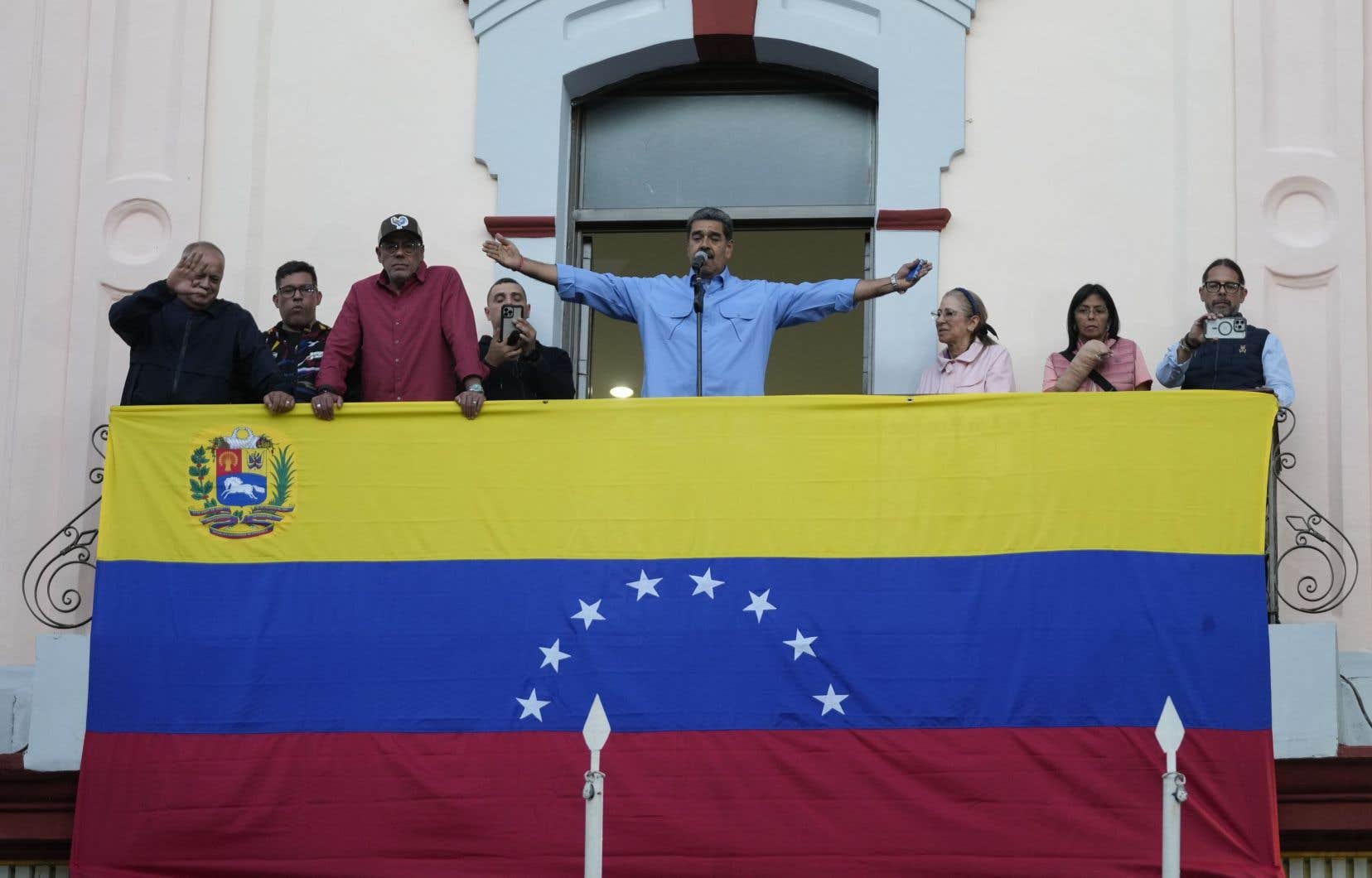The disputed presidential election of July 28 in Venezuela has repercussions on the Americas, the Middle East and the world. This country in northern South America has been for 25 years, since the first election of the late Hugo Chávez in 1998, at the heart of a global conflict between the anti-Western axis and the pro-democracy forces.
Many actors intervene indirectly or directly in this country, some to defend their vital interests, such as the communist regime in Cuba, and others, such as Iran, China and Russia, to challenge the United States in the Western Hemisphere.
Venezuela has the largest oil reserves in the world, located mainly in the south of the country, in the area known as the “Orinoco Belt.” But the Venezuelan state-owned company PDVSA is in ruins after years of mismanagement and corruption. Its production, which by all estimates should be 3 million barrels per day, is now only 600,000 barrels, and depends mainly on alliances with Spanish, Russian, Iranian and even American partners, such as Chevron, under licenses from the US Treasury Department (the Biden administration has threatened to withdraw the licenses due to the irregular elections).
Oil reserve
Venezuela has been a reliable supplier of oil to the United States and Europe for years, but the shift in Venezuelan politics toward increasing authoritarianism and international criminal activity (drug trafficking, money laundering, gold smuggling) has radically changed the situation.
Today, Venezuela sells most of its oil to China (to pay off multi-billion dollar debts) and India, and sends 50,000 barrels a day to Cuba in exchange for medical services and military and intelligence cooperation.
One factor in the Venezuelan landscape is the growing influence and involvement of Islamist forces in the country’s politics and economy. Since the arrival of Hugo Chavez, the regime has developed close ties with Syria and Iran as well as with Hezbollah in Lebanon.
Venezuela’s deposed oil czar Tareck El Aissami, a radical left-wing politician, was one of the most important links to Islamist forces. The son of Lebanese-Syrian immigrants, El Aissami is now in prison after being accused by Nicolás Maduro’s regime of leading a criminal network involved in the theft of more than $21 billion from PDVSA through illegal oil sales on the international market, cryptocurrency operations and money laundering schemes.
Some analysts believe that El Aissami was just a pawn in a broader negotiation with the Biden administration, which led to the release of the leader of the Maduro clan, Alex Saab, a Colombian of Lebanese origin, an economic operator imprisoned in the United States, accused of laundering money from several dubious financial transactions concluded with the Venezuelan government.
Underground Finances
The presence of new Lebanese and Syrian migrants in Venezuela has been accompanied by huge investments in retail and real estate. In a depressed economy that has suffered years of hyperinflation, very low wages and declining purchasing power, many observers are surprised to see large inventories of goods in supermarkets, pharmacies and department stores.
The only explanation for this peculiar situation is money laundering. The same goes for the real estate market, in the capital, Caracas, and in the regions where the “Arabs” (as the local population calls them) buy (paying cash) commercial and residential properties.
The main hub of these financial schemes is Margarita Island, a Caribbean resort where many Lebanese and Syrian business clans have been linked to Hezbollah. While these ties have existed for years, more recently the intensification of financial operations has attracted the attention of the international intelligence community.
Two other actors also play an important role in this story: Iran and Turkey. Iran is an ally of the “revolutionary” regime of Chavez and Maduro. The Islamic Republic cooperates with the Venezuelan government in various areas: oil exploitation and refining, sale of gasoline (to an oil-producing country!), military cooperation, export of vehicles and other goods.
Turkey has become a key trading partner of the government (Turkish products are present everywhere in Venezuela), but it is also the hub where gold from the “Orinoco Mining Arc” is refined and stored. Flights from Caracas to Istanbul are one of the few travel options to Europe in a Venezuelan air market subject to many restrictions.
Russian and Chinese friends
Hugo Chavez, a former army officer, changed Venezuela’s traditional relationship with the United States and turned to Russia for weapons and training. Over the past 20 years, Venezuela has acquired all sorts of Russian equipment: Sukhoi fighters, tanks, missiles, drones, telecommunications equipment and thousands of Kalashnikovs.
The current (and contested) president Maduro has continued to maintain these privileged relations, adding to the equation the physical presence of Russian military personnel and mercenaries from the Wagner group on Venezuelan soil.
The Chinese have also supplied Venezuela with military equipment, mainly riot control vehicles, weapons, ammunition and protective gear for the police. But the People’s Republic’s main concern is the multi-billion dollar outstanding debt that the Venezuelan regime owes it for infrastructure projects (completed and unfinished) as well as a large number of Chinese goods, ranging from buses to household appliances and other products.
Whatever the outcome in Venezuela will influence the balance of power in the Latin American region and beyond. The perception of a weakening US has opened the door for other actors to become more robust on the international stage.
